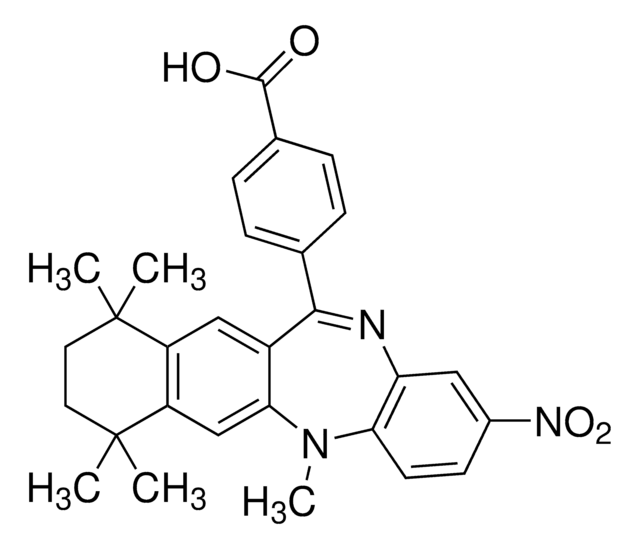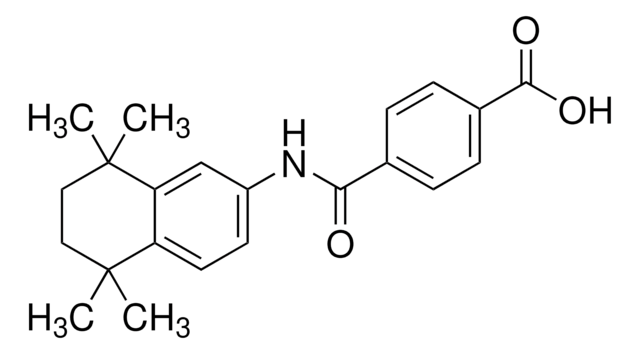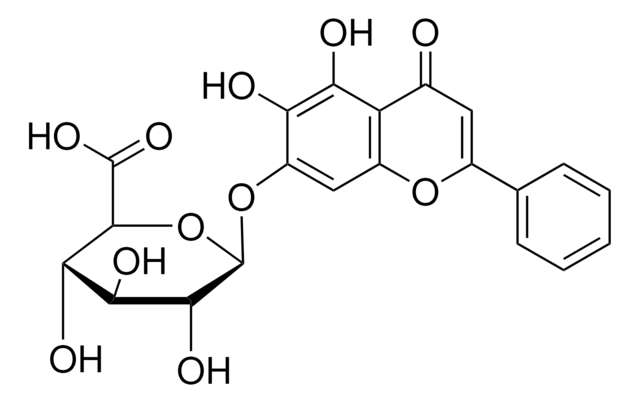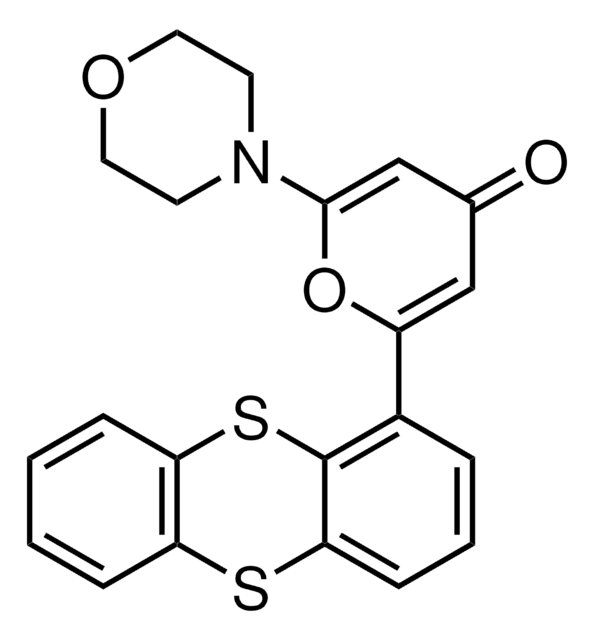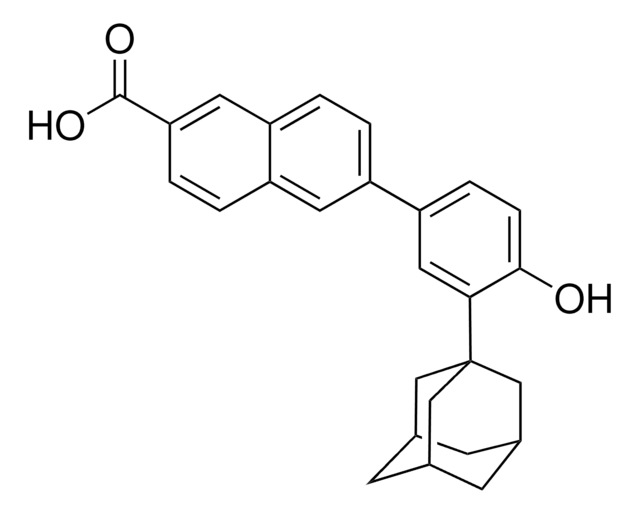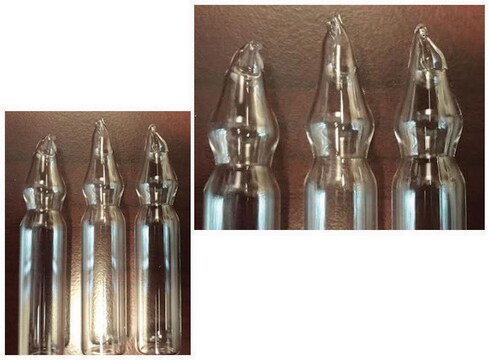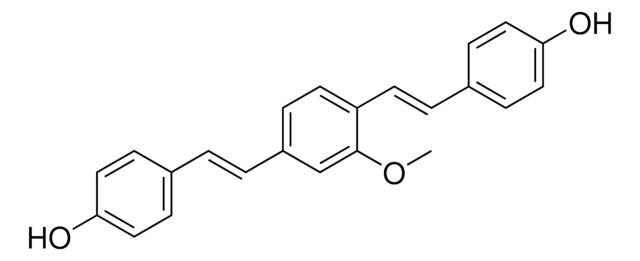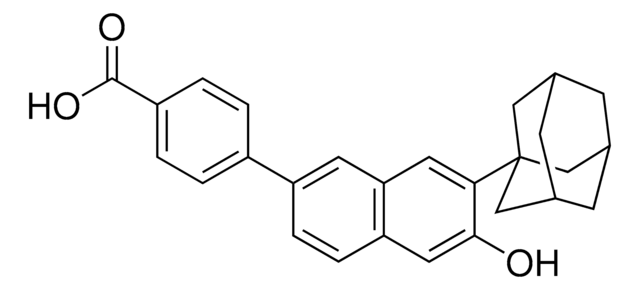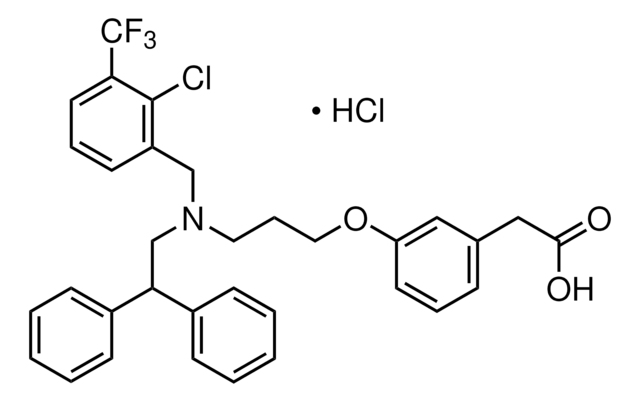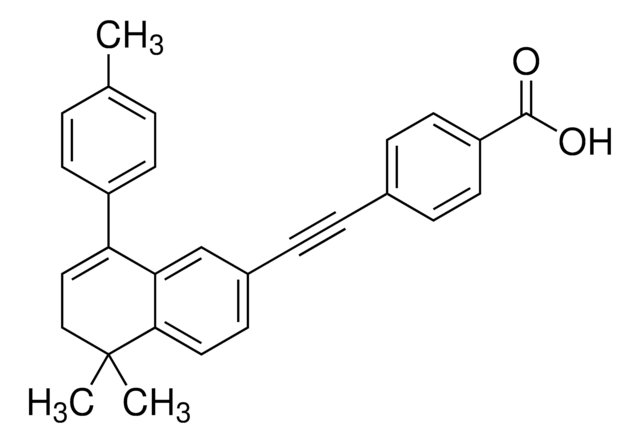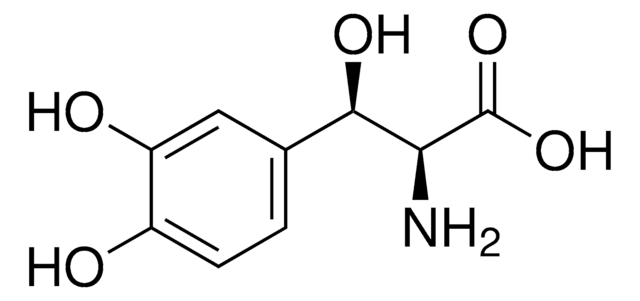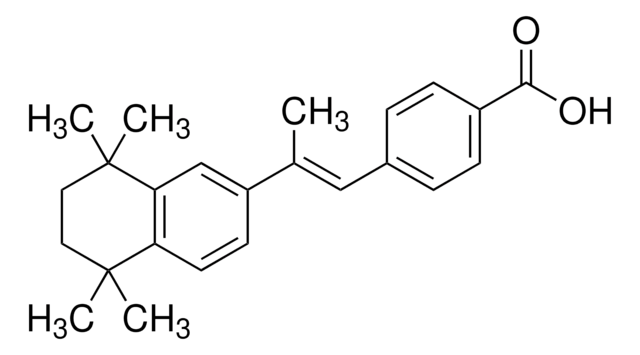SML0282
Bexarotene
≥98% (HPLC)
Sinónimos:
4-[1-(5,6,7,8-Tetrahydro-3,5,5,8,8-pentamethyl-2-naphthalenyl)ethenyl]benzoic acid, LGD-1069, SR-11247
About This Item
Productos recomendados
Análisis
≥98% (HPLC)
formulario
powder
color
white to beige
solubilidad
DMSO: ≥15 mg/mL (warmed)
temp. de almacenamiento
−20°C
cadena SMILES
C=C(C1=CC=C(C(O)=O)C=C1)C2=C(C)C=C3C(C(C)(C)CCC3(C)C)=C2
InChI
1S/C24H28O2/c1-15-13-20-21(24(5,6)12-11-23(20,3)4)14-19(15)16(2)17-7-9-18(10-8-17)22(25)26/h7-10,13-14H,2,11-12H2,1,3-6H3,(H,25,26)
Clave InChI
NAVMQTYZDKMPEU-UHFFFAOYSA-N
Información sobre el gen
human ... RXRA(6256) , RXRB(6257) , RXRG(6258)
Aplicación
- to study its effect on human oral squamous cell carcinoma (OSCC) cell lines
- to test for cooperative cell killing of cutaneous T cell lymphoma (CTCL) with 966
- as a standard in HPLC for determining its potential impurities in drug substances and drug products
- to investigate its effects on the changes in renal, cardiac, hepatic, and pulmonary expression/activity of inducible nitric oxide synthase (iNOS) and CYP4F6
- to analyze the involvement of retinoid x receptor (RXR) homo or permissive heterodimers
- to study its potential impurities in drug substances and drug products
Acciones bioquímicas o fisiológicas
Características y beneficios
Código de clase de almacenamiento
11 - Combustible Solids
Clase de riesgo para el agua (WGK)
WGK 3
Punto de inflamabilidad (°F)
Not applicable
Punto de inflamabilidad (°C)
Not applicable
Certificados de análisis (COA)
Busque Certificados de análisis (COA) introduciendo el número de lote del producto. Los números de lote se encuentran en la etiqueta del producto después de las palabras «Lot» o «Batch»
¿Ya tiene este producto?
Encuentre la documentación para los productos que ha comprado recientemente en la Biblioteca de documentos.
Los clientes también vieron
Nuestro equipo de científicos tiene experiencia en todas las áreas de investigación: Ciencias de la vida, Ciencia de los materiales, Síntesis química, Cromatografía, Analítica y muchas otras.
Póngase en contacto con el Servicio técnico
